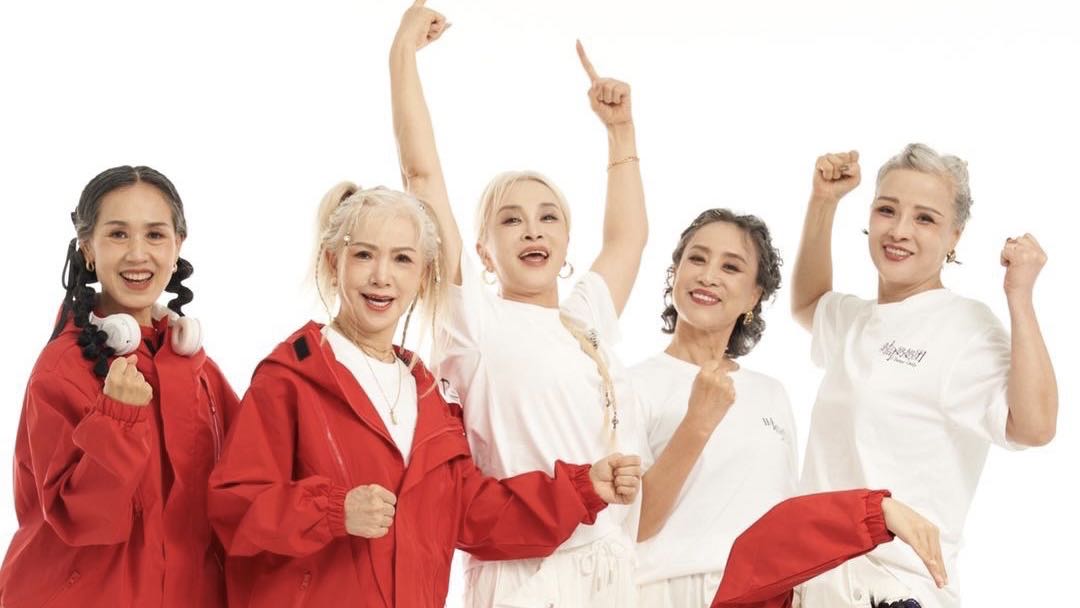There are a growing band of elderly influencers (silver influencers) on China’s social media networks selling a vision of a carefree life of retirement that is causing many to turn their backs on the traditional role of caring for their grandparents. Who are these influencers and how have they inspired their followers?
Lin Xiuwen is 86 years old but she’s not your typical senior. Every morning, she gets up, ties her sneakers for a jog, flips through the latest novels and plans her next travel adventure. Her days are filled with music, art exhibitions and the excitement of exploring new trends online.
Transitioning from engineer to cultural icon, she is one of a growing number of older people building their profiles online to become ‘silver influencers’ older people who are using social media to promote more active or glamourous lifestyle in older age.
“I’ve done a lot of things here that I wanted to do before but didn’t have the chance. After joining the Fashion Grandma group, I have found a group of friends who also love beauty and life. We train, perform, dress up together and go to popular attractions, so my later years have become more exciting and fulfilling,” Lin Xiuwen says.
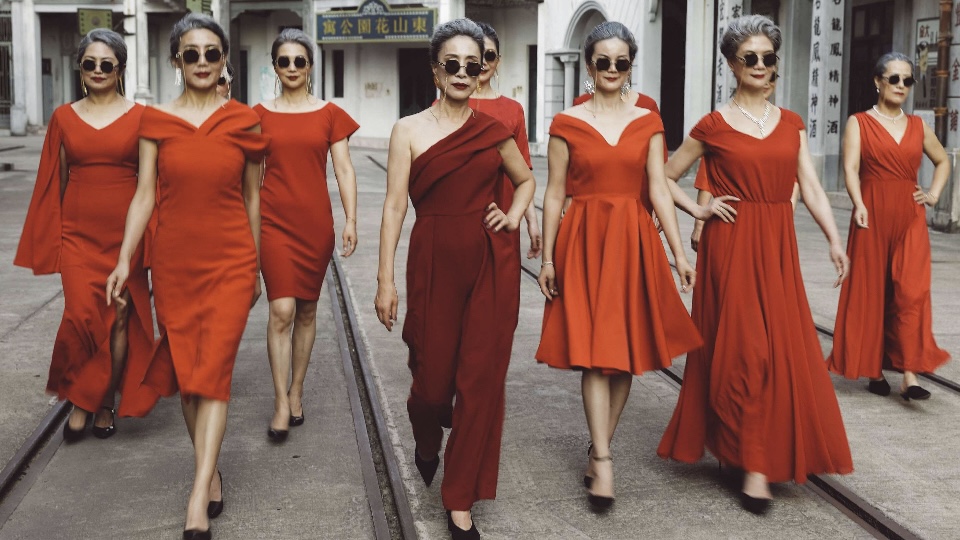
Lin Xiuwen’s career started in the structured world of municipal engineering, where she spent decades building her experience in a male-dominated field. She got to grips with every aspect of the job, from the design and construction of urban facilities to their repair and maintenance.
Today, Lin Xiuwen has found a new stage—the digital world. Her role as a “silver influencer” came about in an unexpected way. One afternoon, while looking at videos on her phone, Lin came across the fashion granny group. She was instantly drawn to their confidence and style and felt a real connection.
She picked up the phone and called the group’s leader in Shanghai, feeling both excited and curious. “I’m 86 years old, but I’d love to join you,” she said. The answer she got was more than just an invitation but the start of a new chapter.
Lin was really excited to get started and started learning new makeup techniques, trying out brushes and colours she’d never used before. She even got to walk the runway like a pro, even though she was wearing heels that most people would find difficult to walk in.
“In my professional and personal lives, I’ve always been drawn to the things I find beautiful,” Lin says. “I love taking photos, dancing and, most of all, dressing up.” I have dresses for every season in my wardrobe. It doesn’t matter what season it is – spring, summer, autumn or winter – I can always find something that makes me feel truly beautiful.”
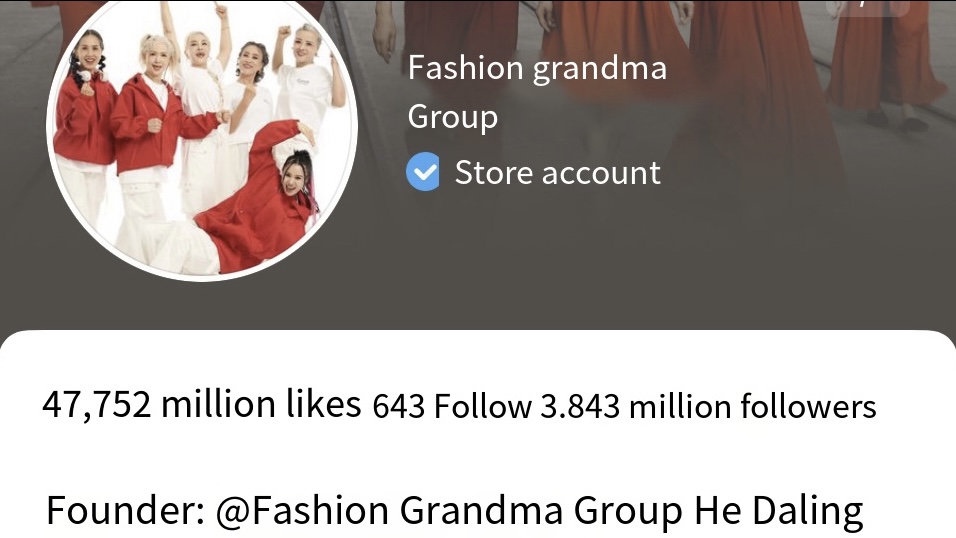
The Fashion Grandma Group has over 2,000 members and more than 3.8 million followers on Douyin, which is the Chinese version of TikTok. The video with the most likes is 2.8 million. On top of that, they’ve been invited to take part in lots of variety shows and have been interviewed by the mainstream media.
It started out as an account for posting short videos and has since grown into a platform for leading retired women to start a new life. “From the start, I knew we’d be more than just taking beautiful photos of the elderly. I wanted to share their real-life experiences with more people, giving them the courage and confidence to live a good life in their old age,” says the girl founder, He Daling.
“We also get lots of private messages from grandmothers all over the country who find us in different ways and want to join. Once I went to give a talk and after it was over, some grandmothers on the stage came to me with newspapers and asked me how to join. Others were given our account by the staff when they were having a massage in a beauty parlour,” she says.
Granny Group also runs regular fashion workshops where professional instructors teach the grannies about make-up and dressing, as well as guiding them through training.
“We don’t think appearance is the most important thing, but it is a great way of boosting the confidence of the elderly. We want to help them to gradually undergo a physical and mental transformation, starting with their appearance,” He Daling says.
People help the grandmothers taking portraits there and most of them have never had a decent photo taken in their lives. “Many of them cry when they get their photos, and they say, “It’s so nice to see that I can be this beautiful, “Daling says. “By looking at themselves in the photos, they’ve discovered another possibility in their lives.”
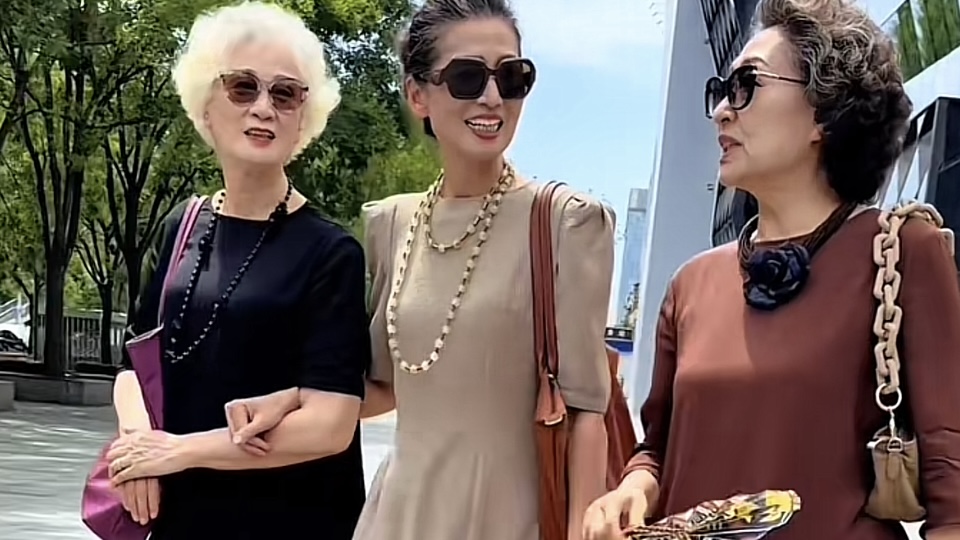
In recent years, the rise of the elderly population and the policy of active ageing guidance, along with the growth of the economic benefits of short videos and online influencers in China, have created the perfect conditions for older people to enter the short video market and become part of it.
Jiang Minci from Guangzhou, a woman in her nineties, has unexpectedly found a new life in the digital world. Even though she thought she’d retired for good, Jiang found a new purpose in content creation.
When the senior citizens’ university closed in 2020 due to the pandemic, and her usual social activities like climbing and boxing with friends were put on hold, Jiang decided to look for new ways to engage and stay active.
She actually stumbled upon online videos quite by chance. She noticed her grandson, Doudou, laughing while making videos for a platform that’s popular with young people – BiliBili. It’s a great place to study and have fun, and people often call it the B-site.
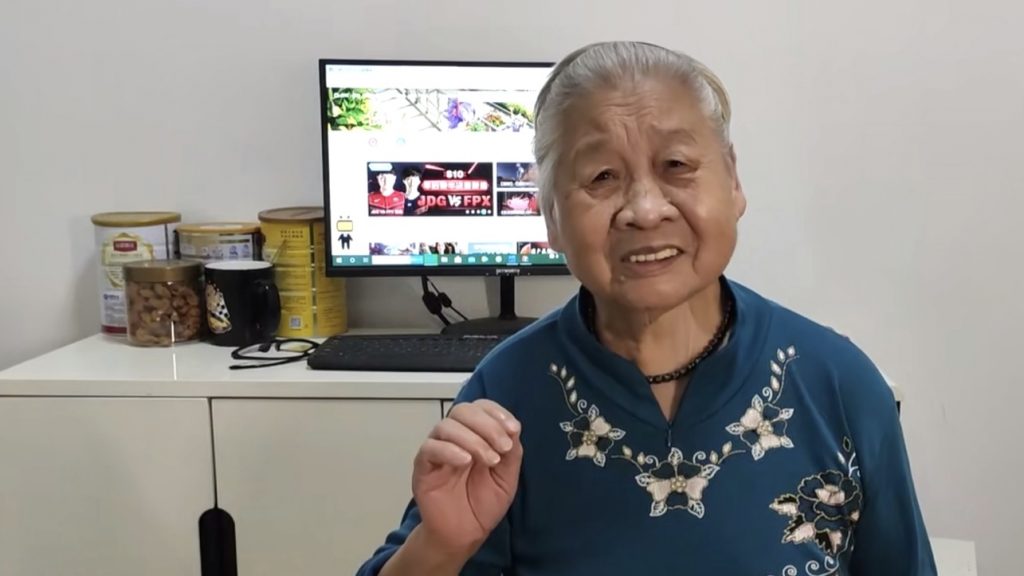
She was curious, so she asked Doudou to jot down the website’s name on a piece of paper. Back in her room, she searched for “BiliBili” on her phone and was amazed to find a whole new world of possibilities. She was quick to adapt to her new role as a digital content creator.
In just three months, Jiang had already amassed 270,000 followers, and that number has since grown to 352,000. She gave her B-site account the apt name “Minci never grows old.”
Jiang’s first video was all about her new identity. In the video, she said, “I’ve heard that young people are into BiliBili, so I want to be an up-and-coming creator.” Her content draws on her wide range of life experiences, including war, chaos, peace and prosperity.
Her recording room is nicely lit, with pale yellow curtains drawn back. Her mobile phone is set horizontally on a tripod. She usually smooths her floral white hair behind her ear and adjusts her sitting position slightly before tapping the video recording button. “Hey everyone, this is Jiang Minci,” she begins her life story with her audience.
Her unique perspective transformed her videos into more than just stories. They became dynamic history lessons. Her young audience is really engaged and often says “history class is back on the agenda.”, and older audiences always say it’s encouraging.
Jiang is pleased with the impact her videos are having. She says: “I’m happy that my videos are helping people to understand the past and the country’s development. I’ve always wanted to write down the stories from my life, but I didn’t have the writing skills to do it. Now, with the video, I can tell those stories.”
The rise of older influencers on platforms like douyin is changing how people in China see ageing. For a long time, ageing was seen as a period of withdrawal, but now it’s being celebrated with energy and visibility thanks to these vibrant personalities.
The 48th statistical report on internet development in China says that 11.2% of internet users are aged 60 and above, and this demographic is increasingly engaged in diverse online activities.
Zhihui Zhang is a 65-year-old retiree from Hunan. And she is a follower of the Fashion Grandma Group. After retiring, she discovered a new passion for life through douyin. “I used to think that life would just slowly wind down after retirement, but watching all these wonderful women living so fully made me realise there’s so much more to explore,” Zhang says.
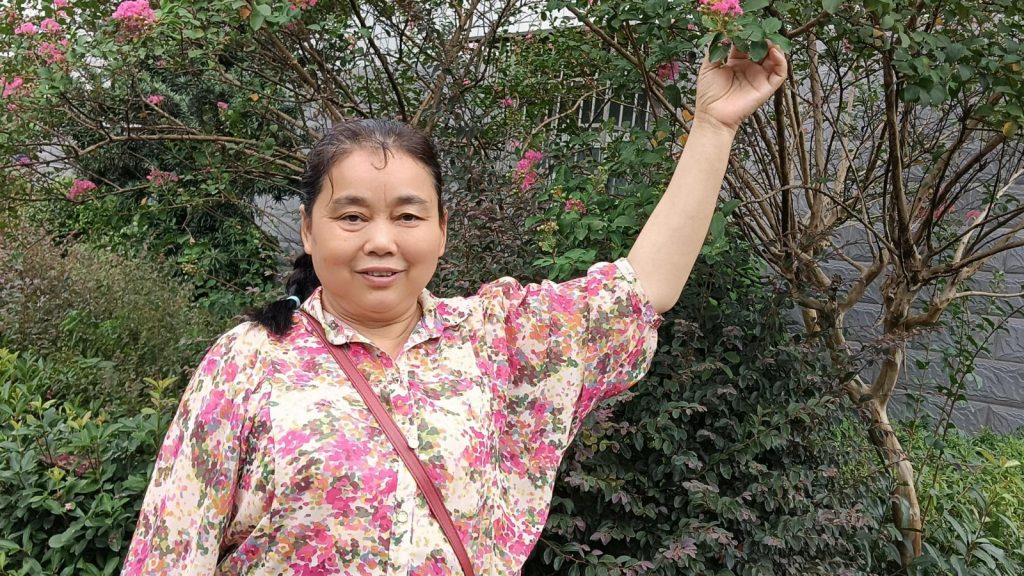
Zhihui isn’t a “silver influencer” with a large following, but she enjoys sharing videos of her daily activities, from dancing to her travel adventures. Her content might not reach millions, but her enthusiasm and joy are there for all to see.
“Every time I post a video of my dances or a place I’ve visited, I feel like I’m adding colour not just to my life but hopefully to others too,” Zhang says. She’s been inspired by other elder influencers to take on a more active lifestyle.
In traditional Chinese families, grandparents often play a big part in helping to care for younger family members, looking after children while parents are at work. This cultural norm has led many retirees to dedicate their golden years to supporting their families, often at the expense of their own personal interests and aspirations.
But the rise of silver influencers is shaking things up. Zhihui Zhang’s new interests have also made her think differently about her traditional role as a caregiver. She is not the same as she was two years ago and refuses to raise her grandchildren for her son.
“I love spending time with my grandchildren, but I’ve noticed from fashionable grandmothers that my life isn’t interesting. I don’t want to do the same things I did when I was raising my own children. I also want to be like those silver influencers and live life to the full,” she says.
“The good lives of these beautiful online grandmothers have taken away my fear of growing old and made me want to pay more attention to the quality of my own life. It was really inspiring to see these influencers, who are even older than me, pursuing their passions.”
At the weekends, however, she also spends some time with her grandchildren. “I like the way when we meet up now, I don’t just watch them play anymore. We’re learning from each other, which is really rewarding,” she says.
“I know how to watch videos, but I ask them to show me the latest on douyin, from trendy challenges to new features,” she says. “It’s a mutual learning experience, as I’m sharing my knowledge about life, and they’re sharing their technical expertise about the internet,” Zhang says.
This change allows grandparents to be seen not just as caregivers, but as people with their own interests and hobbies. When asked about the impact of these shared experiences, Zhang says: “I think Douyin is a good way for me to have fun in the moment. I want to share my life with people online. I also hope that my sharing will encourage them to join me.
The role of older people in China has changed significantly in recent years, partly due to changing cultural norms and government initiatives. In 2020, the Chinese government introduced new policies to improve digital access for older adults.
These new initiatives, as well as Station B’s new Star programme, have encouraged newcomers like Jiang Minci to become content creators.
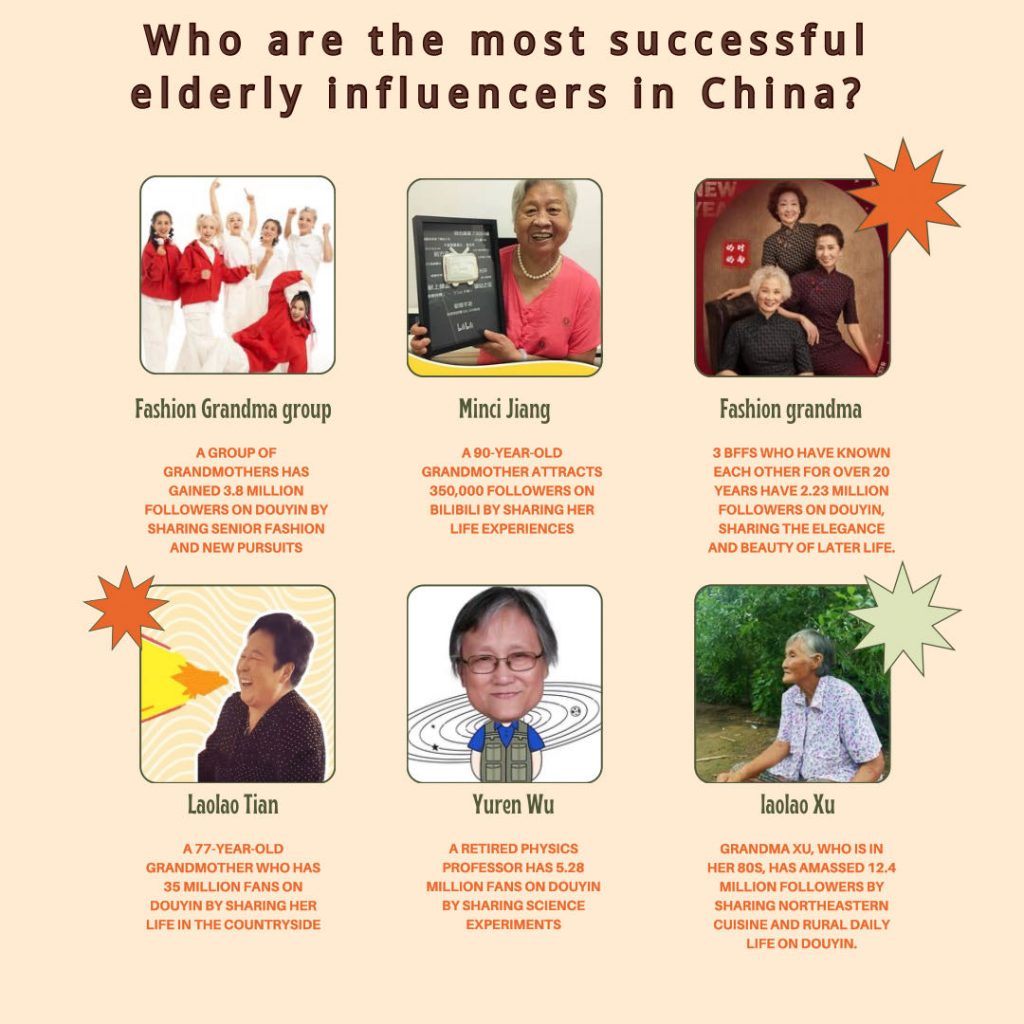
By the end of 2023, there were 297 million elderly people in China. The 2022 China Elderly Mental Health White Paper found that 63% of older people often feel isolated. This may explain why the internet is becoming an increasingly attractive option for seniors looking to connect and build communities.
Popular online platforms like Douyin and B-site are also good for seniors. They provide entertainment, social interaction, creative expression and a sense of belonging. This is where silver influencers really come into their own, inspiring their peers with positive attitudes and new aspirations. These influencers are more than just filling time, they’re filling needs.
“Making videos and sharing them online makes me feel good. I love interacting with my online friends, and some of them become my real-life friends. Surfing online definitely makes me feel less alone,” says zhihui Zhang.
Although it is encouraging to observe an increasing number of older individuals, such as Jiang Minci, publicly sharing their life experiences online, this phenomenon also presents a number of potential challenges and criticisms.
One problem is the digital divide. Not all older people have the skills or resources to engage with digital tools. So this can make them feel isolated.
Social media can also sometimes affect older users’ mental health.The pressure to be active online and the negative comments can have a negative impact on their mental well-being.
Research from Ruijin Hospital, Shanghai Jiao Tong University School of Medicine shows that mental health is linked to longevity and resilience in older adults.
As Jiang Minci’s online influence increased, so did the scepticism and criticism. Some questioned the motives of the older users on B-site, saying they were only seeking fame and money. Others criticised the quality of the video content, saying it did not deserve the attention it received.
Despite these doubts, the trend towards digital participation of older adults is expanding. This changes social norms and family arrangements. As technology continues to evolve, older adults will have more and more new ways to create and share their experiences.
“It’s no longer the case that me and lots of older people are just about ‘raising children; or ‘cooking dinner’. Our lives are no longer just a two-point line between home and the food market, but have gradually become more diverse and freer,” says Zhihui Zhang.
